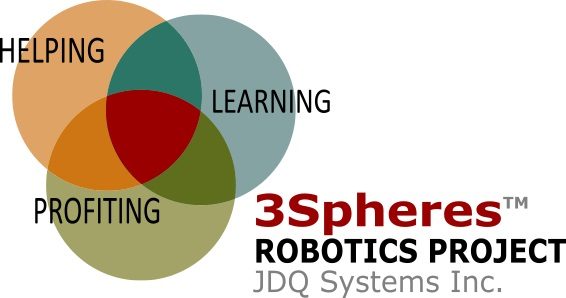About Us
Who Are We?

We are a partnership of organizations that represent all spheres of JDQ’s 3Spheres of Reciprocity model. 3Spheres is a philosophy and model for healthy, optimal, and successful community engagement. It is a paradigm for social responsibility and cooperative, mutually beneficial relationships grown from the fundamental understanding that only through the symbiosis of the spheres of Helping, Profiting and Learning can we all thrive. It reflects our obligation to maximize positive impact and minimize negative impact on society. It expresses our values of mutualism, respect & equality.
The 3Spheres Robotics Project includes:
- non-profits that provide long-term care for people with developmental disabilities and older adults
- for-profits the have managed and successfully delivered custom technology projects for over 20 years
- researchers, mostly at the PhD and Post-Doc level, that are paid to delve into their favourite robotics field of study
- funders that recognize and value investments that have a high potential for ROI and a strong social investment in their community
Steering Committee

Jon Morris, President, JDQ Systems Inc.
Jon Morris is an accomplished business owner with 25 years of experience in the application of technology to improve business processes. Jon has an MBA from the Ivey School of Business and is an ASQ Certified Quality Engineer and Certified Six Sigma Black Belt. Jon’s experience extends from the implementation of formal quality systems for ISO 9001 registration, through the implementation of Lean Six Sigma methods, to software application design to support continual improvement efforts. As a principal of JDQ, Jon continues to consult on strategic improvement initiatives while providing leadership to the 3Spheres Robotics Project team based on quality and Agile principles.

Alanna Hendren, Executive Director, Developmental Disabilities Association
Alanna Hendren is the Executive Director of the Developmental Disabilities Association (DDA) in Vancouver, Canada, with over 35 years of experience leading non-profit service providers to help people with developmental disabilities reach their full potential. Alanna has a B.A. in psychology and is a Certified Association Executive, receiving awards for: leading community development in response to provincial institutional closures, municipal access and inclusion; HR/LR in the social services sector, and for leading the implementation of mental health services for people with developmental disabilities provincially. Alanna’s recent professional interest has been the use of technology to maximize developmental potential and independence.

Derek Shackleford, Principal, JDQ Systems Inc.
Derek Shackleford has held senior management positions in the technology and manufacturing sectors, and brings considerable management experience to JDQ. With a background in database design, Derek has focused on the design and implementation of systems to support business improvement including activity based costing and production management systems, sales activity tracking, document management, and corrective action systems. Derek has directed the custom application development activities of JDQ on a day-to-day basis for over 20 years. The design and development of custom collaborative service robots is a natural progression of Derek’s craft and expertise.

Shazia Jafri, Director of Finance, Developmental Disabilities Association
Shazia Jafri is the Director of Finance of the Developmental Disabilities Association (DDA). As Director of Finance, Shazia oversees all accounting and financial reporting including the development and management of budgets, payroll, as well as manages DDA’s financial and capital resources and financial risk. Shazia is a Chartered Professional Accountant with over 25 years of experience in the Non-Profit sector, working collaboratively with the board of directors, staff, stakeholders and community partners.
Researchers
Current Researchers
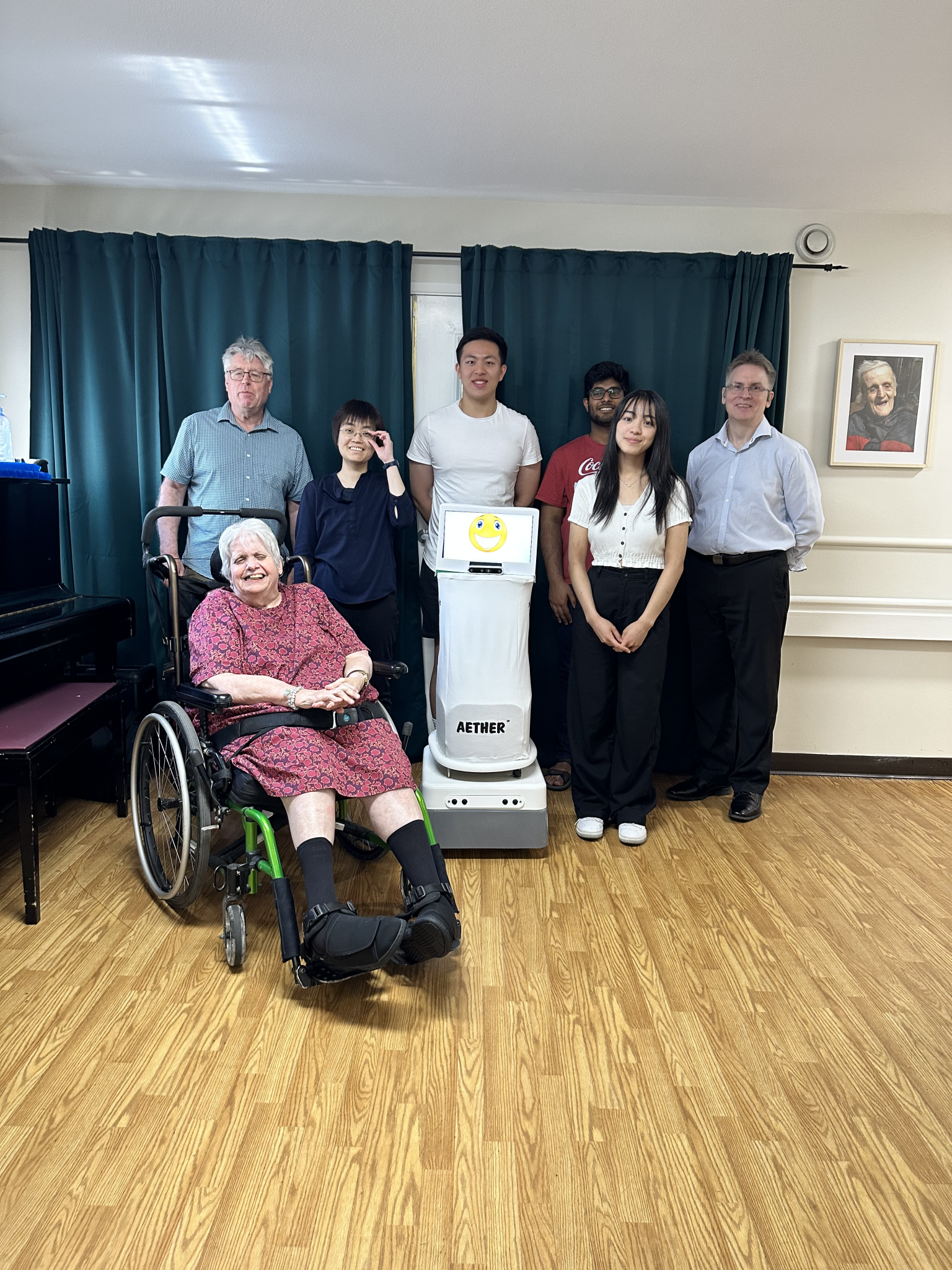
UBC IDEA Lab Research Team
Arisa Kinugawa, Research Assistant | BA in Psychology & BASc in Nursing at UBC
(phase 1 lead)
Kate Davies, PhD Candidate (phase 2 lead)
Karen Wong, PhD Candidate (phase 3 lead)
…and Freshta Hasim, Ivan Yu, Jason Fu,
Albin Soni, Rachel Xia, and Dr. Lillian Hung
Silas Franco dos Reis Alves, PhD
Silas has been collaborating with researchers in Academia and Industry for 10+ years to mobilize knowledge and create novel robots to aid people. His main research interest is employing Human-Robot Interaction (HRI) to create machines that help people, in particular those with disabilities, to achieve their personal and professional goals. He joined the 3SRP project to work on person identification through voice, so that Aether robot could recognize clients and provide personalized services. He is now working to improve Aether’s person detection and recognition, with emphasis in human-fall detection, and to create Virtual Reality environments to simulate HRI and navigation use cases.
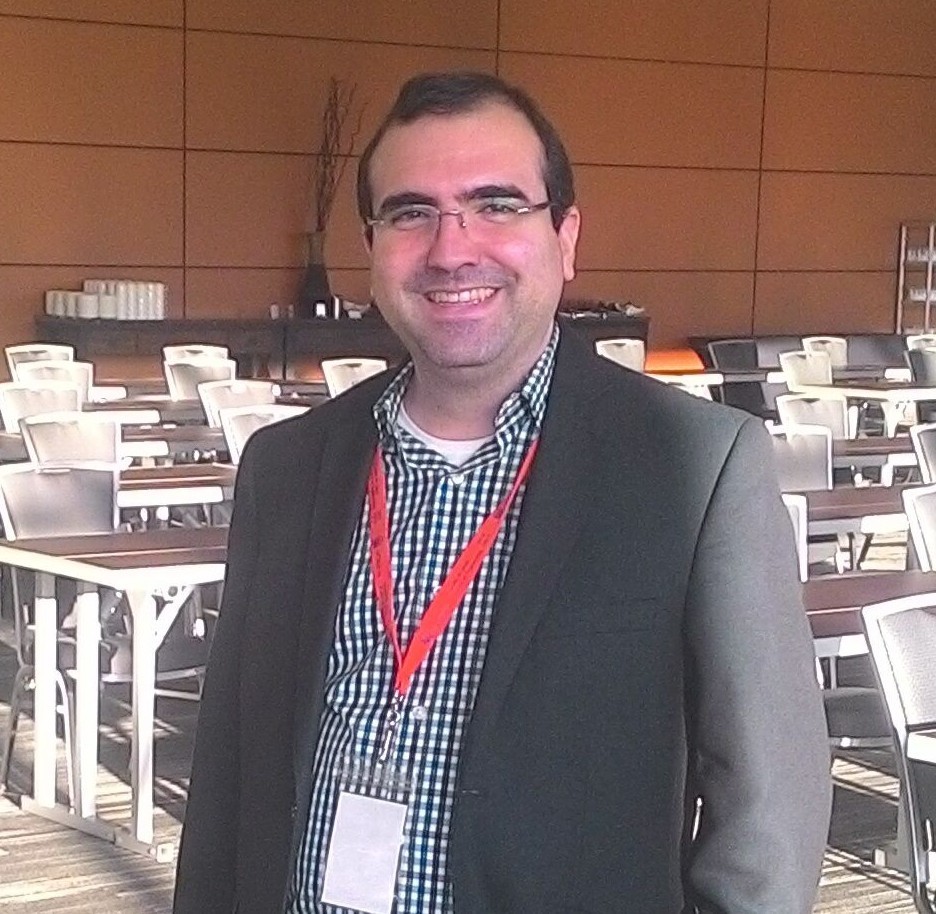
Past Researchers
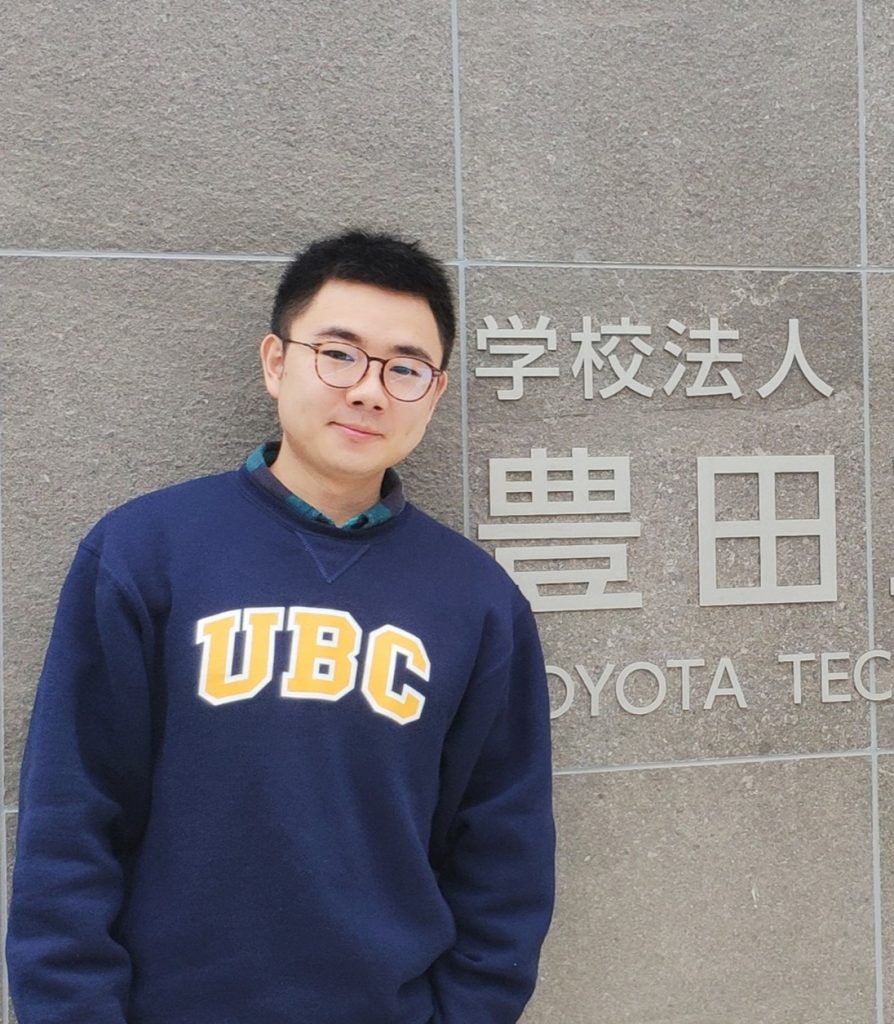
Delun Chen, MASc
Delun’s work focuses on the industrial design of Aether 2.0. The goal is to improve the appearance of the Aether robot and develop a user-friendly enclosure that is also compatible with Aether’s core functionalities. Delun iterates through four development cycles to ideate conceptual prototypes. The robot candidates with different combinations of contours, lines and colours are created using CAID techniques. To maximize user acceptance of the Aether 2.0 industrial design, a user-centered approach, using virtual reality, is applied to collect user feedback in a safe and healthy manner.
Alvaro Joffre Uribe Quevedo, PhD
Dr. Uribe Quevedo is an Assistant Professor at the Ontario Tech University. He received his bachelor’s degree in Mechatronics Engineering from Universidad M. Nueva Granada – Colombia, followed by a Master and Doctoral degree in Mechanical Engineering from the Universidade Estadual de Campinas – Brazil. In 2016 he concluded his Post-Doctoral appointment at the Games Institute at the University of Waterloo researching the effects of games in medical training. His research interests are in virtual reality applications and assessment tools, tailored to immersion and interactions for effective, inclusive and meaningful experiences. He is passionate about gaming technology and an early adopter of immersive technologies.
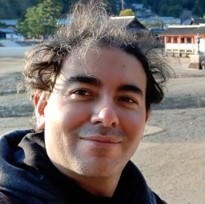
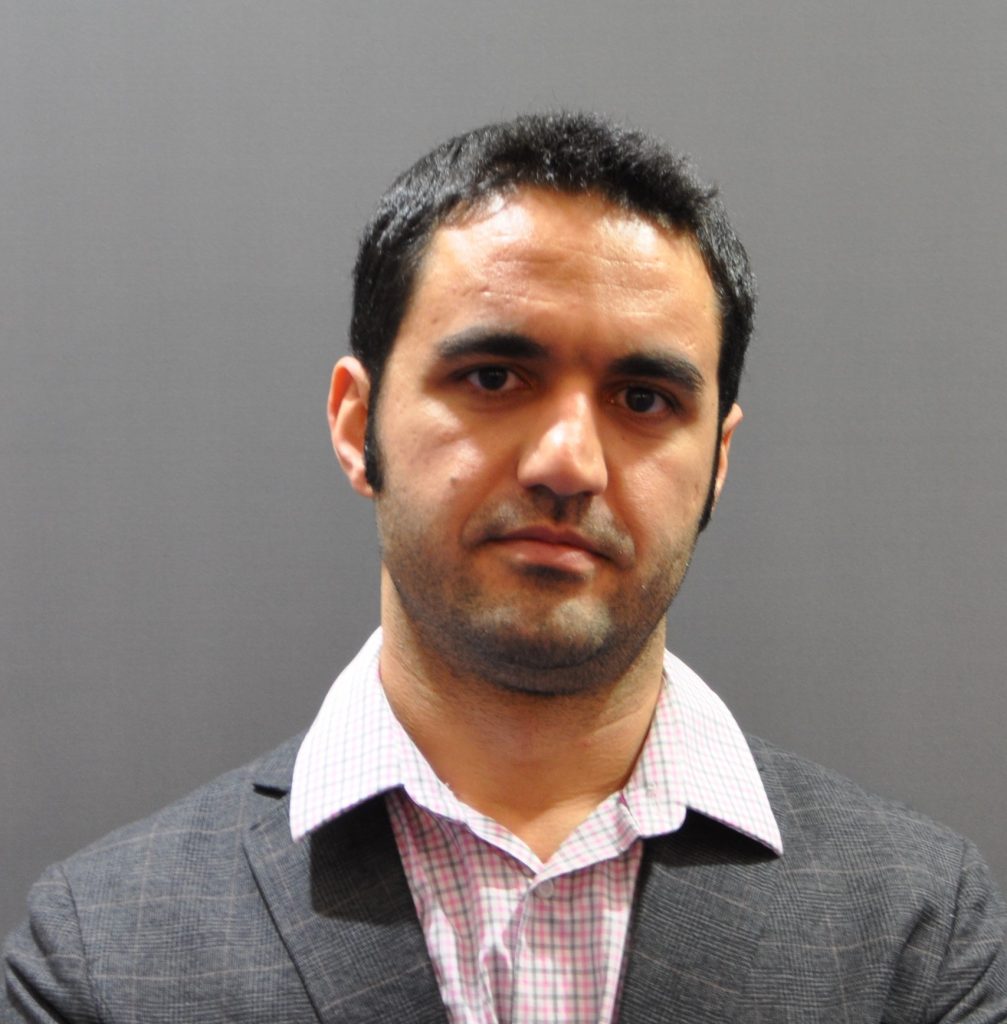
Sina Radmard, PhD
Sina has managed the research aspect of the project while working directly with the rest of the researchers. He has successfully applied for numerous governmental and non-governmental grants that continue to allow us to build a talented research team over the years. On the technical side, he has worked on all aspects of the project ranging from autonomous navigation to visual recognition to voice/visual interaction to hardware/software integration and conducting user studies.
Wesley Chan, PhD
Wesley worked on Aether’s person following skills, integrating a multi-modal person tracker with Aether’s face recognition and dialog modules, enabling Aether to follow facility staffs or residents around, and play tag with people. He also worked on Aether’s hazard region labeling module, enabling users to inform Aether of hazardous regions, and Aether to travel safely through these regions. In addition, Wesley worked on Aether’s power consumption bench-marking and battery solution.
Current position: A research fellow at the Department of Electrical and Computer Systems Engineering at Monash University.
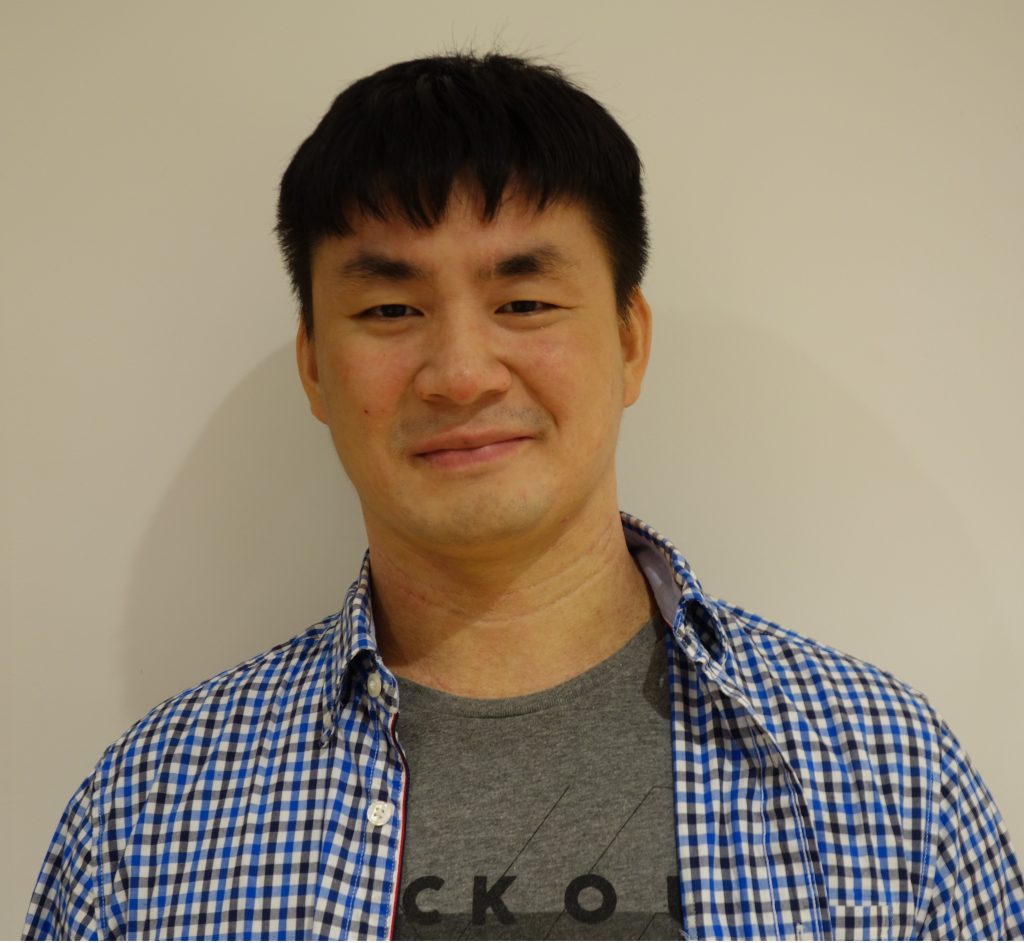
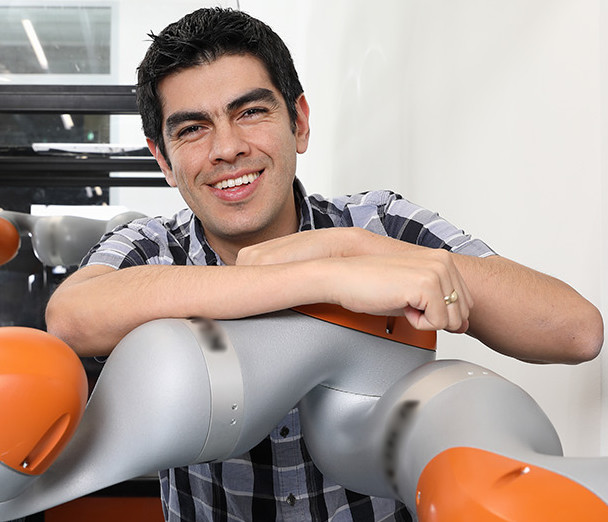
Camilo Perez Quintero, PhD
During his time with the project Camilo focused on: 1) Providing Aether with the capacity to detect, localize, and avoid small objects in its surrounding. He developed and integrated into the robot software pipeline a computer vision algorithm to deal with small objects laying on the ground, e.g., shoes, purse, glasses, keys, etc. 2) Providing Aether with the capacity of controlling its speed based on house zones. For instance, every time the robot goes through a door it has to reduce the velocity to avoid tipping due to the door sill plate. 3) Restructuring Aether software packages to overcome problems with sensor delays and to provide an easier deployment of software on multiple platforms.
Current position: CTO and Co-founder of YPC Technologies.
Bulmaro Valdés, PhD
Bulmaro is a biomedical engineer whose research focus is to use technology to improve the quality of life, recovery process, and care of people with disabilities and seniors. The multidisciplinary nature of his work allows him to collaborate with therapists, neuroscientists, kinesiologists, caregivers and engineers.
He collaborated with the industry partner (JDQ Systems Inc.) on the development of a testing plan, ethics application and a communication platform (Google Home, Google) for Aether.
Current position: As a Postdoctoral Fellow at Simon Fraser University, Canada, his projects involve the use of robotic devices and immersive virtual reality for rehabilitation, and galvanic vestibular stimulation for improving motor performance.
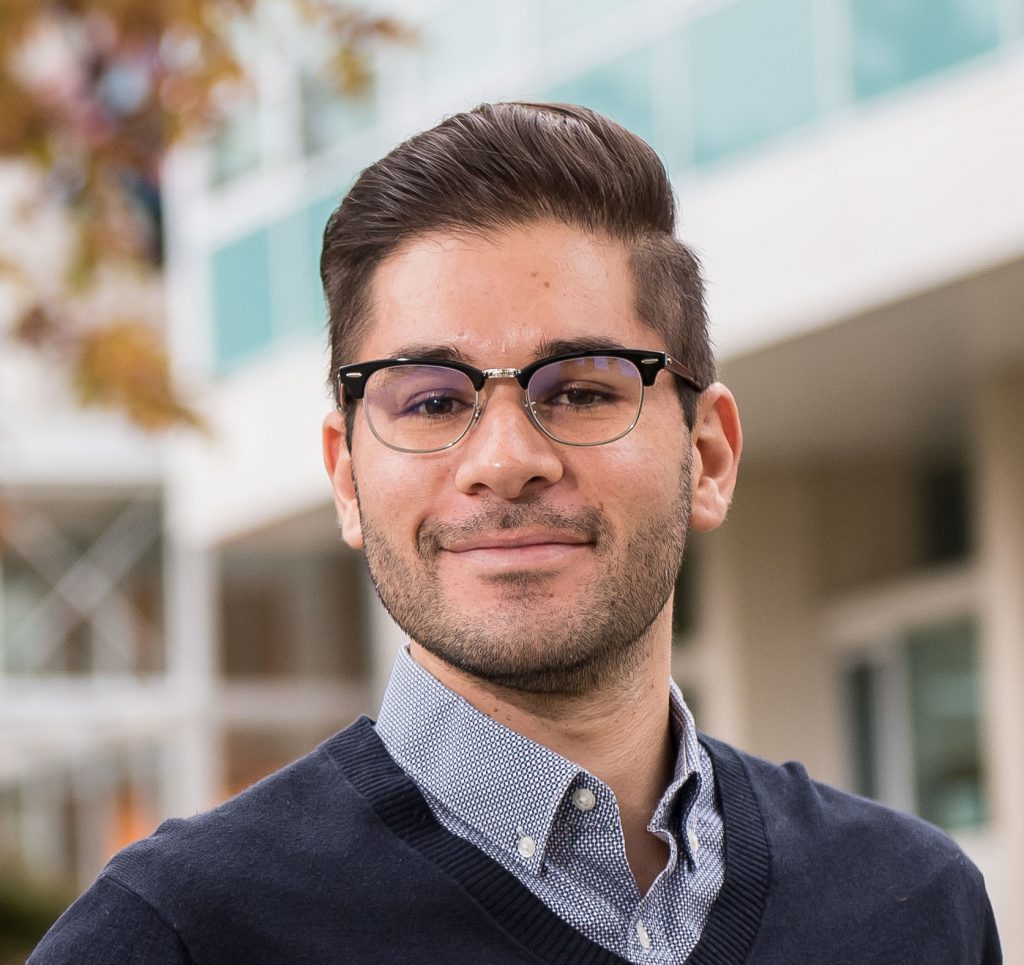

Lucas Porto, BASc
Lucas developed the face recognition and voice interaction systems that allowed Aether to interact with and approach clients. His work focused on training and deploying machine learning algorithms and creating pipelines for simultaneous processing of visual and dialog data.
Current position: Master’s student at the University of British Columbia, working on applied machine learning in medical imaging.
OTU 2022 Capstone Team – VR Robot Simulation Using Unity
(L to R: Craig Holder, Dylan Brush, Maija Kinnunen, Hao Tian Guan)
- Improving current digital replicas of the virtual DDA group home and JDQ office for VR robot simulation using Unity, including 3D Authoring and human avatars representative of older adults.
- Prototyping networking functionality for VR
- Exploring networking options to allow multi-users in the VR simulation.
- Prototyping VR functionality allowing interactions for users to navigate and interact with the Unity VR simulation.

Latest News
- Aether™ Robot to Showcase at THE DATA EFFECT VANCOUVER In-Person SummitVANCOUVER, BC, June 11, 2024 – Aether™ Robot, the groundbreaking collaborative service robot developed under the 3Spheres Robotics Project, is set to make a significant appearance at CityAge’s “The Data Effect: The Next Evolution in Health” summit in Vancouver on June 25, 2024. This event brings together top executives, researchers, and technology leaders to explore… Read more: Aether™ Robot to Showcase at THE DATA EFFECT VANCOUVER In-Person Summit
- DDA Annual Report Article – April 2019In the 4th quarter of 2018, the 3Spheres Robotics Project team completed a 3-month, grant-funded, “focus group” study that compared and contrasted the robotics requirements for seniors living in eldercare rest homes with the requirements for people with developmental disabilities living in DDA group homes. The study concluded that there are a lot of similarities… Read more: DDA Annual Report Article – April 2019
- The Case for Rehab/Concierge Robots… by Alanna HendrenRecruitment and Retention We cannot recruit and retain staff as service providers, which means that families have even more challenges recruiting. For unionized agencies in B.C., generally the highest paying; 1/3 of community living agencies had turnover rates greater than 20% and just under 10% had turnover rates over 30%. Younger people are particularly difficult… Read more: The Case for Rehab/Concierge Robots… by Alanna Hendren
Contact Us
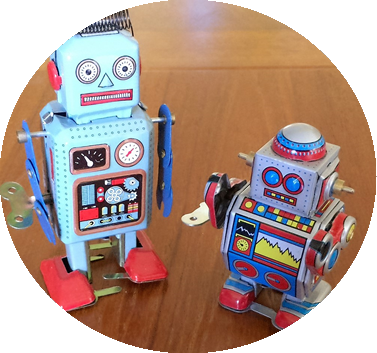
Email: aether@3srp.com
Phone: 604.876.1422 Opt 1
Web: www.3srp.com
Vancouver, Canada
